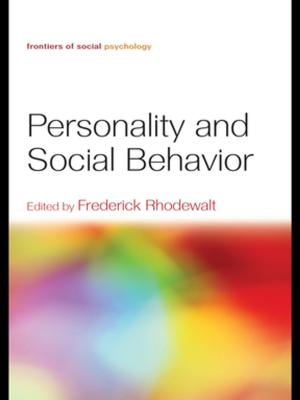| Author: | ISBN: | 9781135668440 | |
| Publisher: | Taylor and Francis | Publication: | June 17, 2013 |
| Imprint: | Psychology Press | Language: | English |
| Author: | |
| ISBN: | 9781135668440 |
| Publisher: | Taylor and Francis |
| Publication: | June 17, 2013 |
| Imprint: | Psychology Press |
| Language: | English |
How is one to understand the nature of intelligence? One approach is through psychometric testing, but such an approach often puts the "cart before the horse"--the test before the theory. Another approach is to use evolutionary theory. This criterion has been suggested by a number of individuals in the past, from Charles Darwin in the more distant past to Howard Gardner, Stephen Gould, Steven Pinker, Carl Sagan, David Stenhouse, and many others. The chapters in this book address three major questions:
- Does evolutionary theory help us understand the nature of human intelligence?
- If so, what does it tell us about the nature of human intelligence?
- And if so, how has intelligence evolved?
The goal of this book is to present diverse points of view on the evolution of intelligence as offered by leading experts in the field. In particular, it may be possible to better understand the nature and societal implications of intelligence by understanding how and why it has evolved as it has. This book is unique in offering a diversity of points of view on the topic of the evolution of human intelligence.
How is one to understand the nature of intelligence? One approach is through psychometric testing, but such an approach often puts the "cart before the horse"--the test before the theory. Another approach is to use evolutionary theory. This criterion has been suggested by a number of individuals in the past, from Charles Darwin in the more distant past to Howard Gardner, Stephen Gould, Steven Pinker, Carl Sagan, David Stenhouse, and many others. The chapters in this book address three major questions:
- Does evolutionary theory help us understand the nature of human intelligence?
- If so, what does it tell us about the nature of human intelligence?
- And if so, how has intelligence evolved?
The goal of this book is to present diverse points of view on the evolution of intelligence as offered by leading experts in the field. In particular, it may be possible to better understand the nature and societal implications of intelligence by understanding how and why it has evolved as it has. This book is unique in offering a diversity of points of view on the topic of the evolution of human intelligence.















